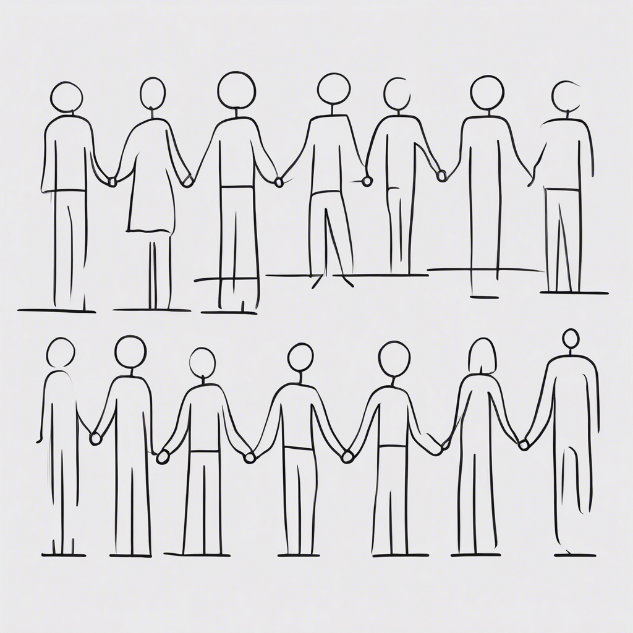
- Cultural Evolution (277) - The process by which societal beliefs, practices, and norms change and evolve over time.
- Devil's Advocate Position (278) - Taking a contrarian or skeptical viewpoint to challenge prevailing ideas or opinions.
- Dunbar's Number (279) - The cognitive limit on the number of people with whom one can maintain stable social relationships.
- Echo Chambers (280) - Environments where individuals only encounter information or opinions that reinforce their existing beliefs.
- Filter Bubble (281) - The isolation individuals experience when algorithms selectively personalize online content they see.
- Free Rider Problem (282) - The tendency for individuals to benefit from a public good without contributing to its provision.
- Fundamental Attribution Error (283) - The tendency to overemphasize personality factors and underestimate situational influences on behavior.
- High Context vs. Low Context (284) - Cultural differences in communication styles, with high-context cultures relying more on implicit cues.
- In-Group Favoritism (285) - The tendency to favor members of one's own group over those from other groups.
- Introverts vs. Extroverts (286) - Personality traits characterized by preference for solitary or social interactions, respectively.
- IQ vs EQ (287) - Intelligence quotient (IQ) measures cognitive abilities, while emotional quotient (EQ) measures emotional intelligence.
- Network Effects (288) - The impact that one user or component has on the value of a network for other users or components.
- Observer Effect (289) - The phenomenon where the presence of an observer influences the behavior or performance of subjects.
- Out-group bias (290) - The tendency to view individuals outside one's own group less favorably or with suspicion.
- Personas (291) - Archetypes representing different user types, used in design and marketing to understand user needs.
- Pirate Code (292) - Unwritten rules or principles governing behavior in a particular group or community.
- Punching Above Your Weight (293) - Achieving results or success disproportionate to one's resources or perceived capabilities.
- Secrets (294) - Information kept confidential or hidden from others, often involving a degree of trust or conspiracy.
- Social Norms vs Market Norms (295) - Distinction between behaviors governed by social expectations versus those guided by market transactions.
- Streisand Effect (296) - The unintended consequence of trying to suppress information, leading to its increased dissemination.
- Trust (297) - Confidence in the reliability, integrity, and competence of individuals or systems.
- Victim Blame (298) - Attributing fault or responsibility to individuals who have experienced harm or injustice.
- Zombie Ideas (299) - Beliefs or concepts that persist despite being debunked or discredited, often due to cultural inertia.